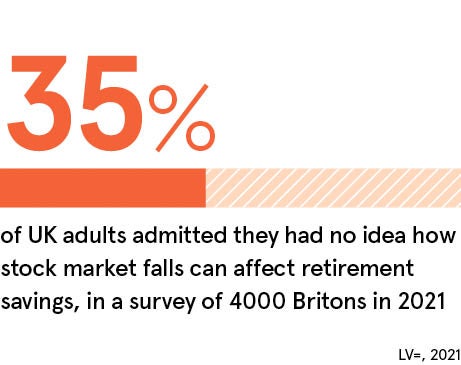Pensions used to be a simple affair. You retired, you drew your pension and the hardest decision you had to make was how much tax-free cash to take. But since pension freedom rules came into effect six years ago and the world was turned on its head through Covid-19, people now have significantly more choice about what to do with their pension pots, but arguably tougher decisions to make about their true priorities. And more choice doesn’t necessarily lead to better decisions, says Paul Chafer, chief commercial officer at Wren Sterling.
Some have revelled in the flexibility that working from home and a slower-paced lifestyle has given them and are looking at planning for retirement earlier and shifting to part-time work. For others, they now recognise that they are not saving enough to meet their retirement needs, says Chafer. For both of these groups, it is important for them to visualise their end game.
“That means thinking about what retirement looks like—what do you want to do, how long do you want to be doing it for and how much is it going to cost you,” says Chafer. “Those are the conversations we have with clients to get them to view retirement in real-world terms rather than thinking about it just in pounds and pence.”
While that may sound simple, it is often very difficult for clients to make that journey by themselves, usually for emotional reasons, says Chafer. Financial advice is as much about the psychology of making good decisions and putting people in a positive frame of mind to work towards clearly defined goals, as it is to do with squeezing investment performance, he adds.

“People want to maximise their income and their quality of life in retirement, but in a way that doesn’t come back to haunt them—if they take on unnecessary risk, it could erode their pension pot and result in a retirement that does not match their wishes,” Chafer says. “Working with an adviser gives them peace of mind that they’re making the right long-term decisions, which can release a lot of stress.”
Hidden value of advice
A common mistake people make is forgetting that their pension needs to provide them with an income for the remainder of their life.
“People receive a pension statement with a six or seven figure sum on it, forgetting that this is not a lottery win and it needs to last them for maybe 30 years, or more,” says Chafer. “It’s incumbent on an IFA to really understand the client and work with them to paint a picture of their retirement and how the plans we make with them are going to achieve those goals.
“We find those with a final salary pension scheme really benefit from the expertise of an adviser. We’re often approached by people who think the best action for them to take is to transfer from their final salary scheme, however accessing pension benefits early is not suitable for everyone. Our role is to ascertain if that’s in their best interests, as clients’ retirement goals can often be achieved by drawing income from their final salary pension rather than transferring. Again, the benefit of an adviser is ensuring all options are considered with all of the client’s investments, income and expenses being viewed in the round.”
Parental corporates
It’s not just individuals seeking this reassurance. Companies are increasingly adopting a more parental role by providing retirement planning advice on behalf of their employees, which Wren Sterling has done for over a decade.
“We support a number of FTSE 100 and FTSE 250 companies who understand that pensions are not always number one on their employees’ priority list, but often, someone’s pension pot is their largest asset and most difficult to deal with,” says Chafer. “There is a move across all companies, not just large companies, to really concern themselves with financial wellness and understanding that when staff are concerned about their financial position, it detracts from their performance at work. Sorting out pensions and retirement can be a game-changer in many ways.”
Wren Sterling is a national firm of independent financial advisers who hold the Pension Transfer Gold Standard and are FSQS accredited. For more information or to book a free initial consultation, see wrensterling.com/understanding-pensions
Sponsored by
Pensions used to be a simple affair. You retired, you drew your pension and the hardest decision you had to make was how much tax-free cash to take. But since pension freedom rules came into effect six years ago and the world was turned on its head through Covid-19, people now have significantly more choice about what to do with their pension pots, but arguably tougher decisions to make about their true priorities. And more choice doesn’t necessarily lead to better decisions, says Paul Chafer, chief commercial officer at Wren Sterling.
Some have revelled in the flexibility that working from home and a slower-paced lifestyle has given them and are looking at planning for retirement earlier and shifting to part-time work. For others, they now recognise that they are not saving enough to meet their retirement needs, says Chafer. For both of these groups, it is important for them to visualise their end game.
“That means thinking about what retirement looks like—what do you want to do, how long do you want to be doing it for and how much is it going to cost you,” says Chafer. “Those are the conversations we have with clients to get them to view retirement in real-world terms rather than thinking about it just in pounds and pence.”





